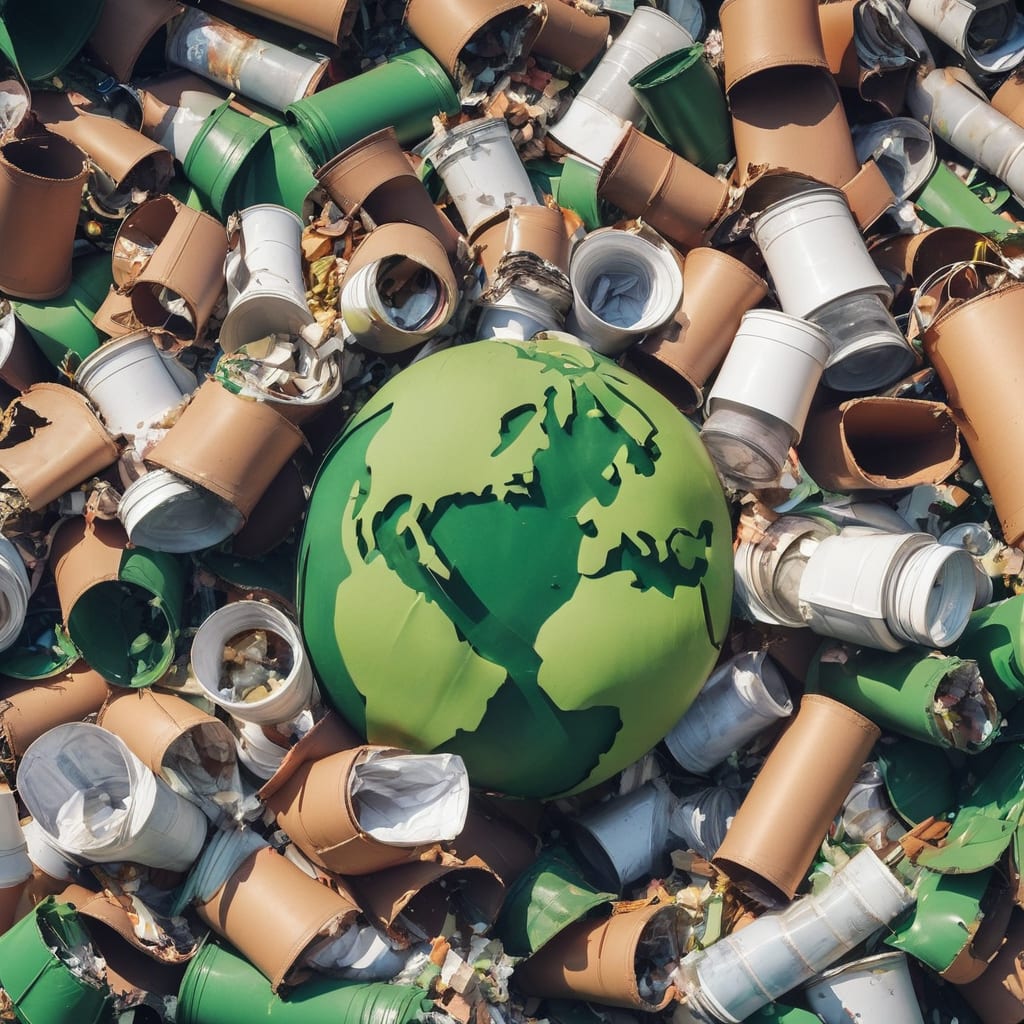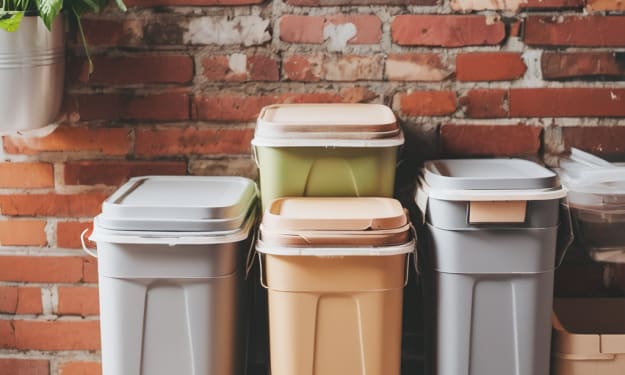The Environmental Benefits of Composting
Turning Waste into Wealth for a Greener Planet

The Environmental Benefits of Composting: Turning Waste into Wealth for a Greener Planet
As we become more conscious of our environmental impact, composting has emerged as a simple yet powerful way to reduce waste and promote sustainability. By turning organic waste into nutrient-rich soil, composting not only minimizes the amount of waste sent to landfills but also enriches our gardens and agricultural lands. Here’s why composting is beneficial for the environment and how you can get started.
1. Reduces Landfill Waste
One of the most significant environmental benefits of composting is the reduction of waste sent to landfills. Organic waste, such as food scraps and yard clippings, makes up a large portion of municipal solid waste. When these materials are composted instead of thrown away, they decompose naturally, reducing the volume of waste in landfills. In the United States alone, it is estimated that about 30-40% of the food supply is wasted, contributing to a significant portion of landfill content. By diverting organic waste from landfills through composting, we can significantly decrease the strain on these waste management systems and extend their lifespan.
2. Decreases Greenhouse Gas Emissions
When organic waste decomposes in landfills, it produces methane, a potent greenhouse gas that contributes to global warming. Methane is approximately 25 times more effective at trapping heat in the atmosphere than carbon dioxide over a 100-year period. Composting, on the other hand, allows for aerobic decomposition, which produces significantly less methane. By composting your organic waste, you can help reduce greenhouse gas emissions and mitigate climate change. In addition to methane reduction, composting also helps sequester carbon in the soil, further contributing to the fight against climate change.
3. Improves Soil Health
Compost is rich in essential nutrients and organic matter that improve soil structure, water retention, and fertility. Adding compost to soil enhances its ability to support plant growth, reduces the need for chemical fertilizers, and promotes healthy, resilient ecosystems. The organic matter in compost helps to bind soil particles together, improving soil structure and preventing erosion. Additionally, the nutrients found in compost, such as nitrogen, phosphorus, and potassium, are released slowly, providing a steady supply of nutrients to plants over time. This slow release of nutrients reduces the risk of nutrient leaching and water pollution compared to synthetic fertilizers.
4. Conserves Water
Composted soil retains moisture better than non-amended soil, reducing the need for frequent watering. This water retention is particularly beneficial in areas prone to drought or water scarcity. By using compost, you can conserve water and promote sustainable gardening practices. The improved soil structure created by compost increases the soil’s ability to absorb and hold water, making it available to plants during dry periods. This not only conserves water but also helps plants withstand drought conditions and reduces the need for irrigation, saving both water and energy.
5. Encourages Biodiversity
Healthy, compost-rich soil supports a diverse range of microorganisms, insects, and plants. This biodiversity is crucial for maintaining balanced ecosystems and promoting plant health. Composting fosters a thriving soil ecosystem that benefits both gardens and agricultural lands. The microorganisms present in compost, such as bacteria, fungi, and actinomycetes, play a vital role in decomposing organic matter and cycling nutrients in the soil. These microorganisms also help suppress soil-borne diseases and pests, reducing the need for chemical pesticides. Furthermore, the presence of diverse plant species in compost-enriched soil can attract beneficial insects and pollinators, enhancing overall ecosystem health.
Getting Started with Composti
Choose a Composting Method: There are several composting methods to choose from, including traditional compost bins, tumblers, and worm composting (vermicomposting). Select the method that best suits your needs and available space. Traditional compost bins are suitable for larger outdoor spaces, while compost tumblers are ideal for smaller yards or urban environments. Vermicomposting, which uses worms to break down organic waste, is a great option for indoor composting and apartment dwellers.
Collect Organic Waste: Start collecting kitchen scraps (fruit and vegetable peels, coffee grounds, eggshells) and yard waste (leaves, grass clippings, small branches). Avoid adding meat, dairy, and oily foods, as they can attract pests and slow down the composting process. It’s important to strike a balance between green materials (rich in nitrogen) and brown materials (rich in carbon) to ensure efficient decomposition.
Maintain Your Compost: To ensure successful composting, maintain a balance of green and brown materials. Green materials include kitchen scraps, grass clippings, and fresh plant trimmings, while brown materials include dry leaves, straw, and paper. Regularly turn the compost to aerate it and speed up decomposition. Aeration helps supply oxygen to the microorganisms responsible for breaking down the organic matter. Keep the compost moist but not soggy, as too much water can create anaerobic conditions and slow down the composting process.
Harvest and Use Compost: After several months, your compost will break down into dark, crumbly soil. Use this nutrient-rich compost to enrich your garden beds, potted plants, or lawns. The finished compost can be mixed into garden soil to improve its structure and fertility or used as a mulch to help retain moisture and suppress weeds.
Conclusion
Composting offers numerous environmental benefits, from reducing landfill waste and greenhouse gas emissions to improving soil health and conserving water. By incorporating composting into your daily routine, you can contribute to a more sustainable and resilient environment. Start composting today and experience the positive impact it can have on your garden and the planet. Not only will you reduce your waste footprint, but you'll also help create a healthier, more vibrant ecosystem right in your own backyard.
About the Creator
Enjoyed the story? Support the Creator.
Subscribe for free to receive all their stories in your feed. You could also pledge your support or give them a one-off tip, letting them know you appreciate their work.






Comments
There are no comments for this story
Be the first to respond and start the conversation.